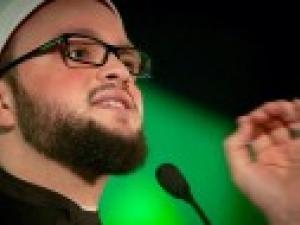Short Description
Almost seven months after the departure of imam William Suhaib Webb, the largest mosque in New England found a new imam who has a mission to balance religious commitment and American cultural belonging.
Almost seven months after the departure of imam William Suhaib Webb, the largest mosque in New England found a new imam who has a mission to balance religious commitment and American cultural belonging.
“He has the ability and potential to really articulate the vision of Islam in America in a way that authentically engages the tradition, yet at the same time meaningfully engages the cultural realities of life in Boston and America,” Yusufi Vali, the executive director of the mosque, which is in Roxbury, told the Boston Globe on Tuesday, July 14.
Vali was referring to Shaykh Yasir F. Fahmy, the new imam of the Islamic Society of Boston Cultural Center who was born in New Jersey and spent seven years in studying Islam.
The appointment of Fahmy, who studied at Al-Azhar University in Cairo, is a part of the Muslim community’s effort to dispel misconceptions about the faith following the latest extremist attacks.
The 32-year-old imam succeeds Webb, a renowned Islamic scholar who moved to the Islamic Society in Roxbury.
“He is an excellent choice and they are extremely lucky to have him,” Webb said in an e-mail.
For months, the mosque leaders have been looking for a new imam, who should be credentialed Islamic scholar, teacher, and worship leader, able to recite the Qur’an from memory.
Earning a degree in Islamic studies and a variety of religious certifications from Al-Azhar University, Fahmy became the first American to teach at Al-Azhar mosque.
After studying Arabic and Islamic sciences at high school, Fahmy joined the Islamic University in Jordan before pursing his undergraduate degree at Rutgers University in the US.
Despite working for three years in corporate finance, the new imam decided to throw himself into a life of religious study and leadership.
“He probably felt a spiritual gap and realized, ‘My place is not here but really serving the community in a different capacity,’ ” said Salim Patel, a longtime friend.
“He did something very brave . . . which is basically give up a career and say, ‘I’m going to pursue religious studies.’ ”
Building Bridges
After finishing his studies at Al-Azhar University, Fahmy served as a scholar-in-residence at the Islamic Center of Passaic County where he taught classes and preached Friday’s sermon in English.
Praising Fahmy’s efforts at Passaic mosque, the center’s president said that he built ties with young professionals of middle generations.
“That middle generation,” Awad said.
“He was very, very successful in attracting them and really talking to them in the language they understand and the culture they belonged to.”
For Awad, replacing Fahmy would be very hard.
Being among the four finalists to be imam of the largest mosque in New England, Fahmy topped others for his charisma.
“The community wanted someone who was “accessible, knowledgeable, well-educated, somebody they could really look up to — and he seemed to fit that bill really well,” said Stephanie Marzouk, who chaired the search committee.
“Also, he was born and raised in the US — that was important to us, that he was really tuned into American culture.”
Besides his charisma and knowledge, the new imam was praised for his understanding to the “challenges of role and the importance of relationships outside the mosque”.
“I challenge every imam with one thing — that he has to build bridges with the interfaith community, with law enforcement, with the leaders of other communities,” said Qatanani.
“I want the imam to be not only imam for Muslims, but I want him also to be the imam for non-Muslims as well — to reach to others to work together as leaders for America.”
Since the 9/11 attacks, US Muslims, estimated between 6-8 million, have complained of discrimination and stereotypes in the society because of their Islamic attires or identities.
A US survey has revealed that the majority of Americans know very little about Muslims and their faith.
A Gallup poll also found that the majority of US Muslims are patriot and loyal to their country and are optimistic about their future.
An Economist/YouGov poll found that a large majority of Americans believe that US Muslims are victims of discrimination amid recent attacks against the community.






![نصيحتي لك: اذكر الله [1 / 12] نصيحتي لك: اذكر الله [1 / 12]](https://www.islamstory.com/images/upload/content_thumbs/1913613138ragheb-al-serjany-videos.jpg)


Comments
Send your comment